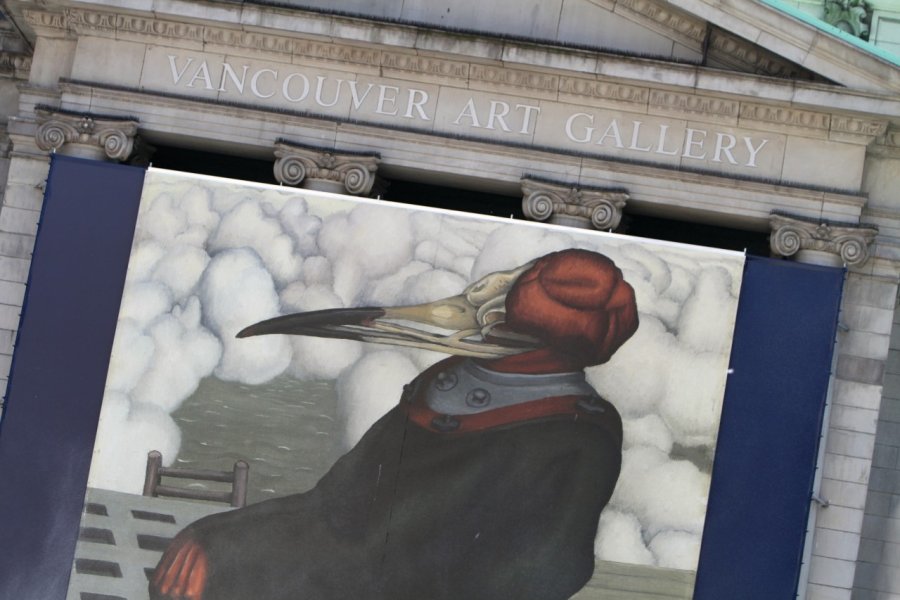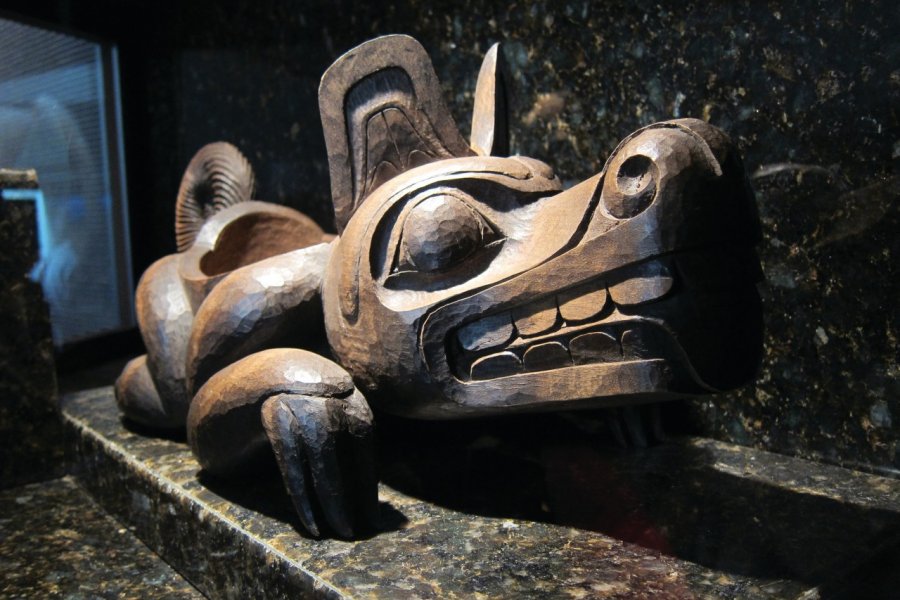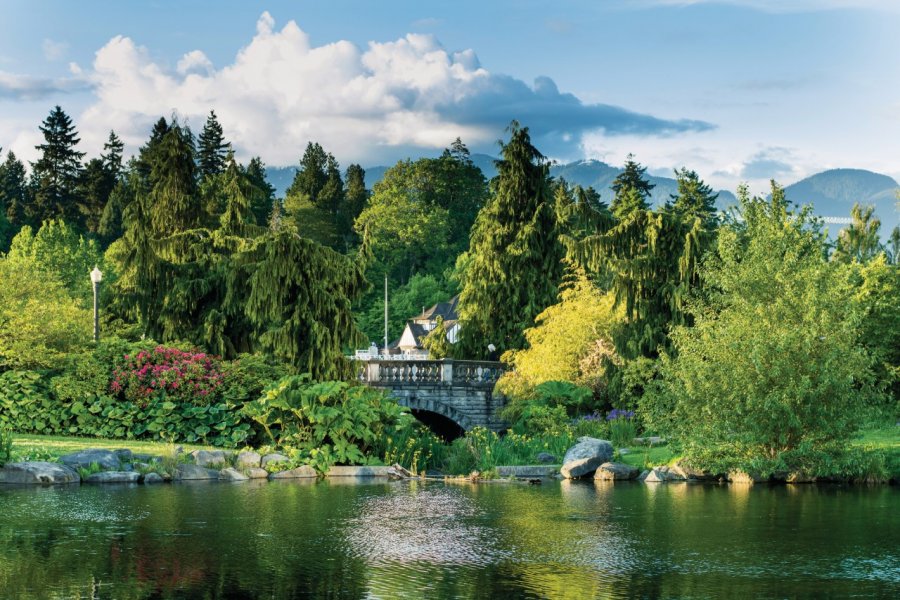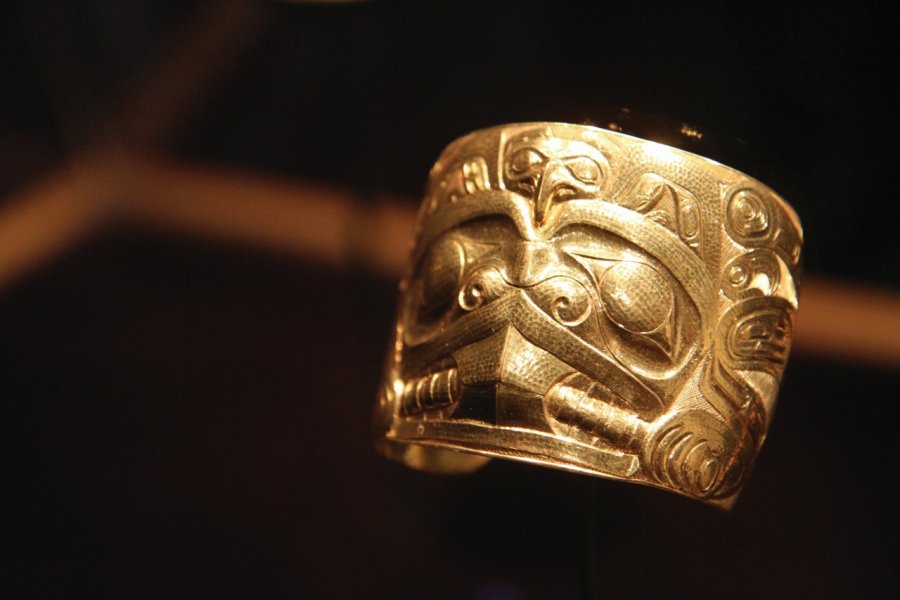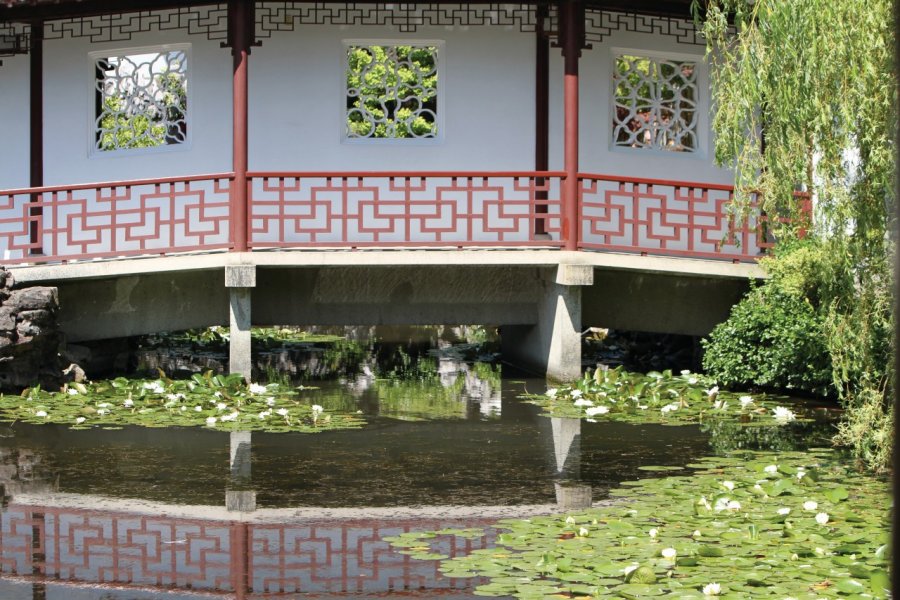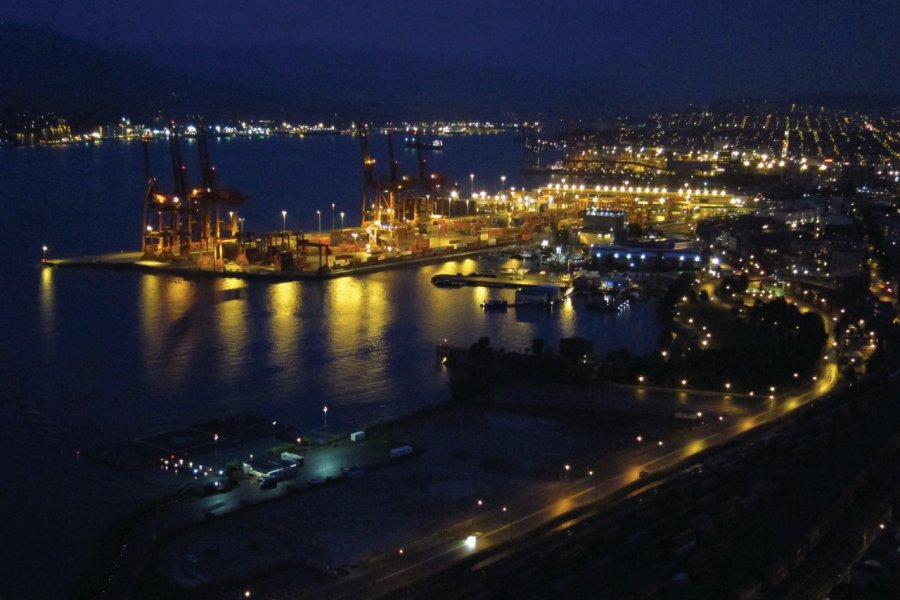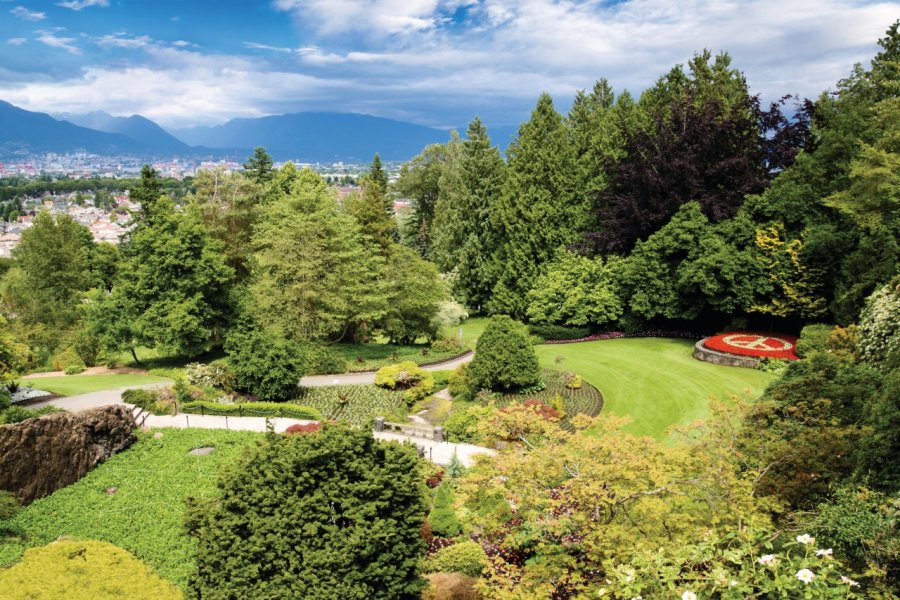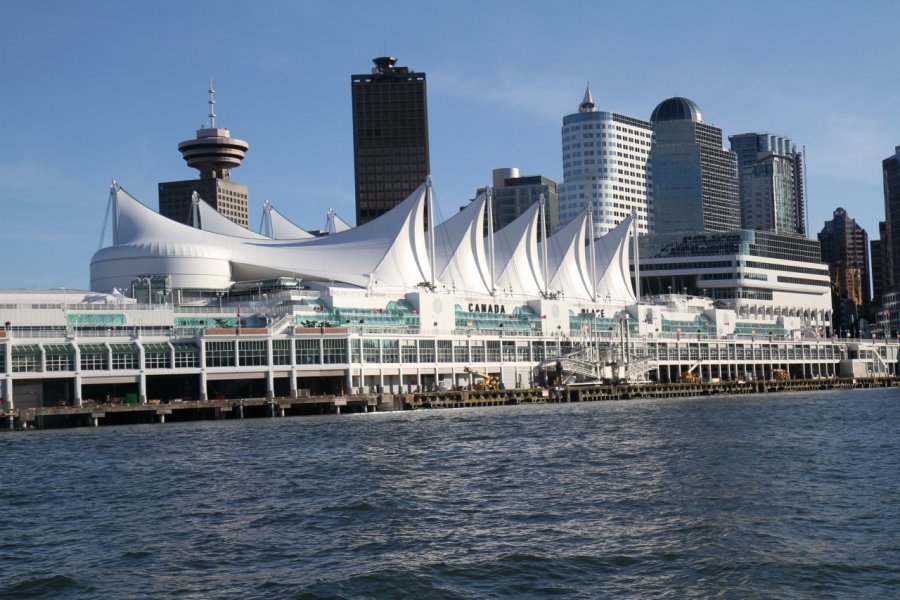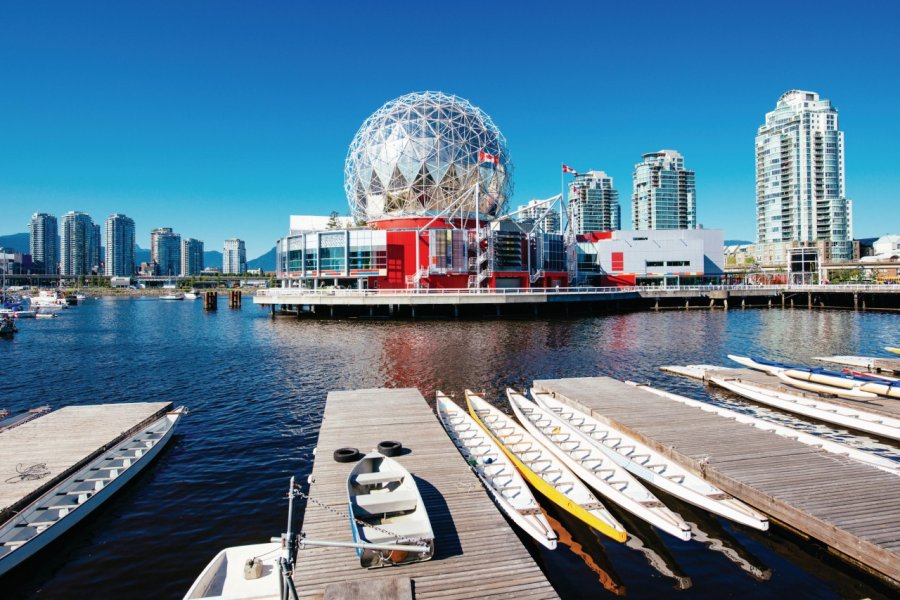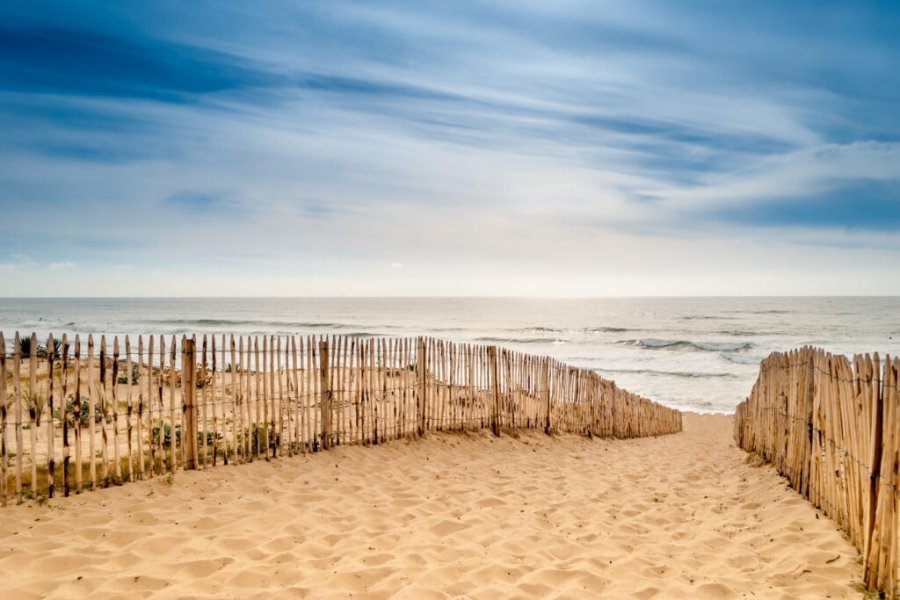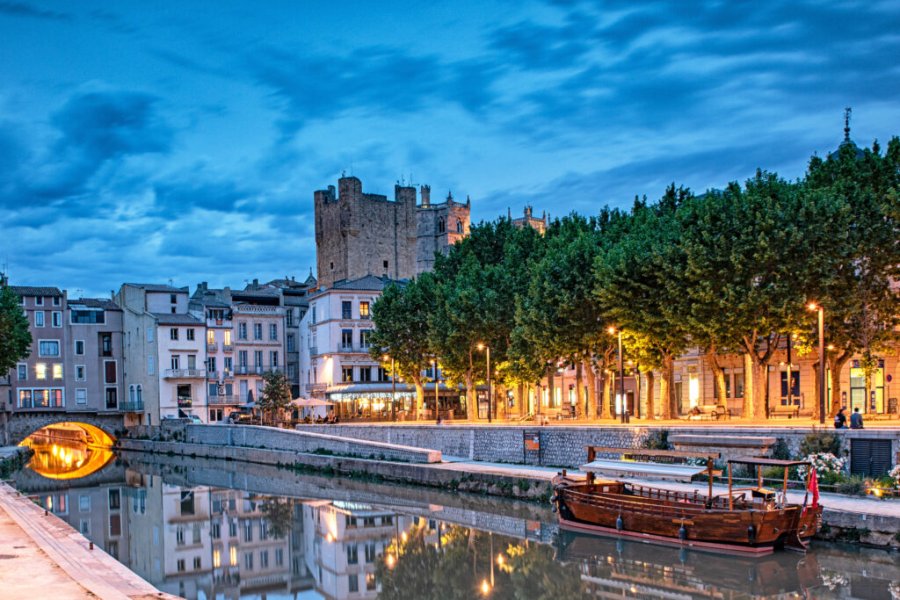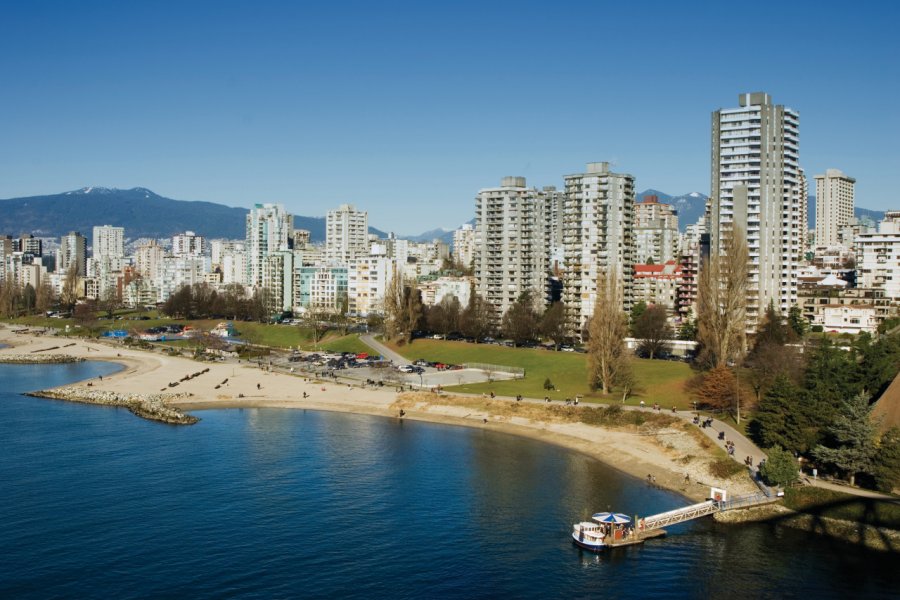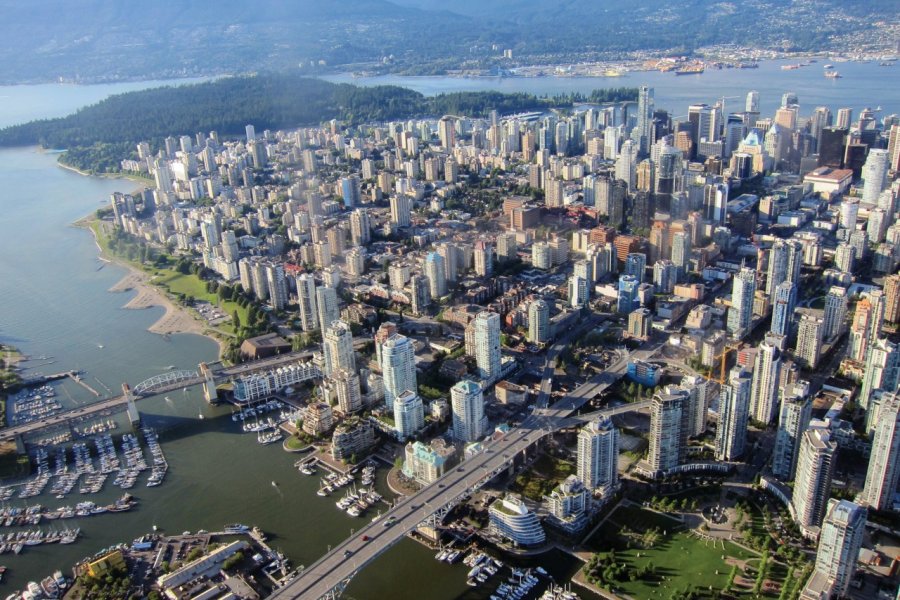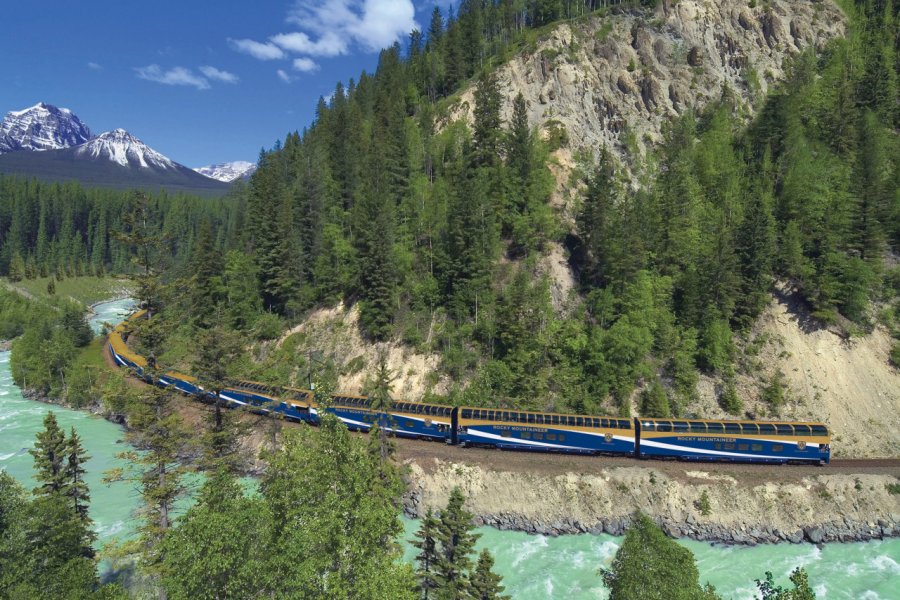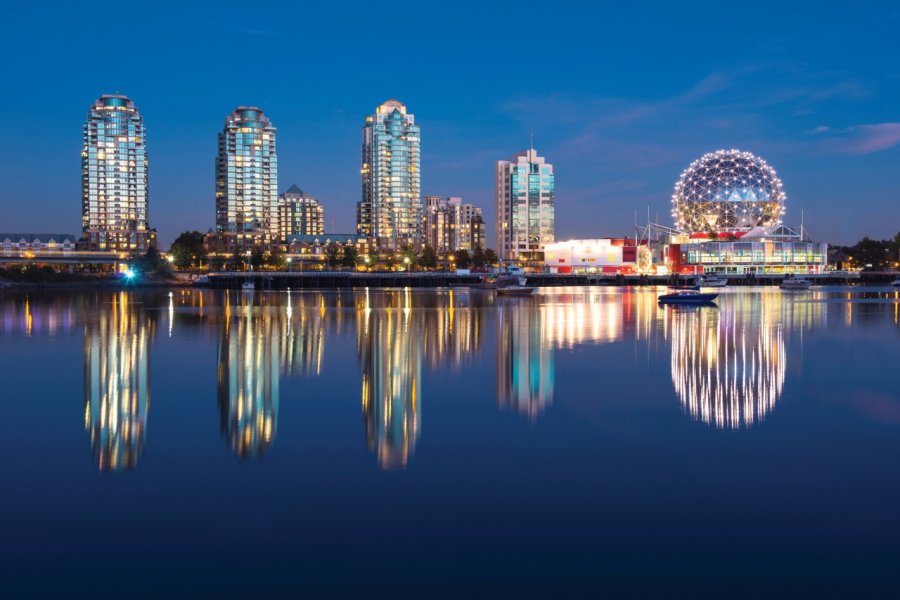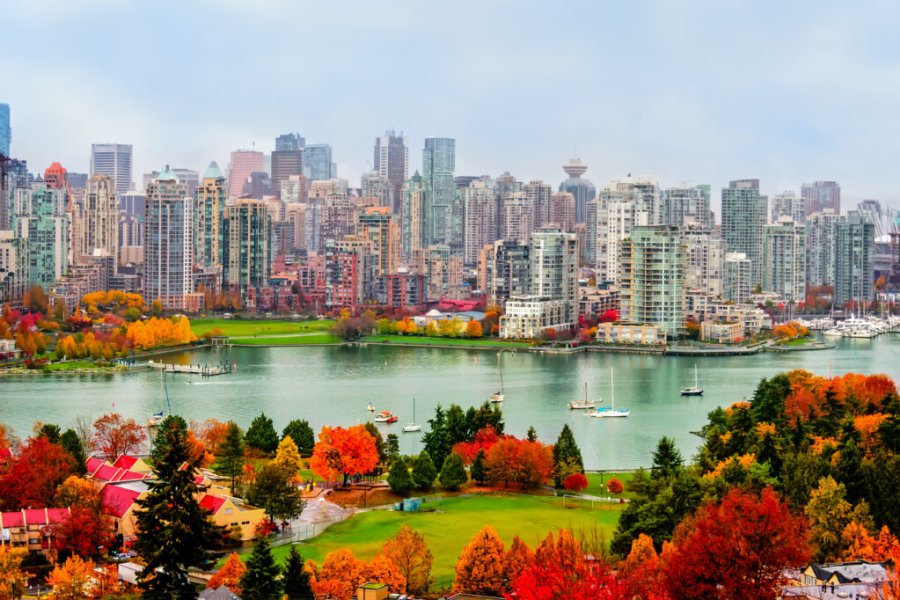Travel Guide Vancouver
Vancouver is located in western Canada, in the province of British Columbia, between the Pacific Ocean and the Canadian Rocky Mountains. Even though it has become one of the most pleasant cities to live in over the last twenty years, Vancouver is still unknown to European travelers. However, in recent years, it has been able to make itself known: in 2010, for example, it hosted the Winter Olympics, and very soon, in 2020, it will be named the world's most ecological city. Vancouver is becoming an increasingly sought-after destination. For its climate, first of all, which is much milder than in the rest of Canada. Although it often rains, the winters are milder and the summers less stifling. For its lively neighborhoods (Gastown, Kitsilano, Yaletown), very student-oriented, where glass buildings and green parks(Stanley Park) meet, where you can breathe fresh and pure air. For its landscape too, with its long beaches that border the entire city, whose refreshing water is rather quiet for an ocean shore, like Half Moon Bay Beach or Kitsilano Beach Park. And then the proximity of the Rocky Mountains and the coastal islands, includingVancouver Island, immense, much larger than Belgium. Here you can go for a weekend hiking, camping, kayaking or skiing. A travel guide to Vancouver will give you ideas to fill your stay, which will seem too short!
What to visit Vancouver?
Suggested addresses Vancouver
When to go to Vancouver?
On the West Coast, where everything is larger than life, there are year-round activities for everyone: families, sports enthusiasts, nature lovers, hunting and fishing enthusiasts. Vancouver is lively all year round, however, depending on your desires, you will have to choose your period of stay. Here are some tips on when to go to Vancouver.
High tourist season: mid-May to early October, mid-December to early January, and February. To make the most of your stay in Vancouver, the period to aim for is when it rains the least, i.e. summer. The months from June to the end of September have the best weather. This is a great time for camping, hiking and water sports. Most Canadians take their vacations in the second half of July, so it is advisable to book in advance. The festival season often begins in May and does not end until October. This is when you discover the city's melancholy charm, when it rains on the ocean, when the orange leaves blaze the trees, when the fog blurs the horizon. The high season for a snow holiday is of course reversed, with the months of December to March being ideal for skiing in Whistler, the city that hosted the 2010 Olympic Games. Beware, unlike the rest of the region, this is when prices are the highest.
Low tourist season: October to mid-December, January, March and April. An off-season trip also has the advantage of seeing hotel prices drop by 10 to 50%.
Weather at the moment
Vancouver's climate is oceanic. The summer months are pleasant and sunny, without being too hot (between 24 and 28°C in July and August). Winters are very mild, in contrast to the rest of the country. The temperature rarely falls below 0°C, and rises to 8°C in the afternoon. Snow is quite rare (11 days per year on average) and melts quickly. On the other hand, autumns and winters are quite rainy.
Here are some price estimates to help you establish a budget. A night in a youth hostel costs $20 CAD/person, a night in a campground between $18 and $30 CAD/2 persons. A bed and breakfast or motel costs at least 80 CAN$/2 pers., a hotel 120 CAN$. For lunch, you should count at least 10 CAN $ for a snack bar, from 10 to 40 CAN $ in a restaurant. Please note that prices are generally exclusive of taxes: 12% must be added.
French, Belgian and Swiss travelers are accepted for six months without a visa. They must have a valid passport, a return ticket (ideally) and sufficient money to ensure their stay. New for visitors to Canada: as of September 2016, visitors who do not require a visa must complete an ETA (Electronic Travel Authorization) prior to travel at www.cic.gc.ca/francais/visiter/ave.asp. The ETA costs $7 CAN per person (less than 5 euros), and will be valid for five years. This online application collects basic personal information, just as is currently done at customs upon arrival in Canada, and results in faster border clearance.
There is no risk to you when you travel to Canada. However, you should make sure that your vaccination record is up to date. All regions have hospitals and clinics (with or without appointments). Specialized centers are located in major cities. However, while medicine is free, it is quite slow. Most medicines are not sold ready to use, in bottles labeled by the laboratories as in Europe. Here, it is the pharmacist who prepares the bottle, filling it with the exact number of tablets prescribed by the doctor, and who writes the dosage of the prescription on the label. This avoids waste and abuse of medication. If you think you need prescription medication, it is best to take the prescription with you.
Practical information
- When to travel?
- Weather forecast
- Budget
- Formalities
- Health
- How to travel by yourself?
- How to get organized?
- Getting around
Media
How to go to Vancouver? Our advice & tips
Tour operators usually include Vancouver in "Western Canada" tours that pass through Calgary, Whistler and Vancouver Island. It may be worthwhile to choose a tour package if you plan to explore the surrounding area and do not wish to drive. On the other hand, if you only want to visit Vancouver, a tour package is not really interesting.
Discover our selection of travel agencies for this destinationVancouver is a very accessible city for Europeans who wish to travel individually. The population is welcoming and it is easy to get around by public transport or on foot. The only drawback is the language barrier, but the friendliness of the Vancouverites makes up for it!
Vancouver's airport is international, so it is easily accessible from France, Belgium and Switzerland. In the heart of the city, you can opt for the bus or the bicycle. It is a city oriented towards soft travel and it is easy to adapt to it. It is also very pleasant to discover on foot, when the weather allows it.
Vancouver travel inspiration
Find unique Stay Offers with our Partners
Pictures and images Vancouver
Discover Vancouver
On the West Coast, where everything is larger than life, there are year-round activities for everyone: families, spor...
Read more about it
Vancouver's climate is oceanic. The summer months are pleasant and sunny, without being too hot (between 24 and 28°C...
Read more about it
Here are some price estimates to help you establish a budget. A night in a youth hostel costs $20 CAD/person, a night...
Read more about it
French, Belgian and Swiss travelers are accepted for six months without a visa. They must have a valid passport, a re...
Read more about it
There is no risk to you when you travel to Canada. However, you should make sure that your vaccination record is up t...
Read more about it
Vancouver is a very accessible city for Europeans who wish to travel individually. The population is welcoming and i...
Read more about it
Tour operators usually include Vancouver in "Western Canada" tours that pass through Calgary, Whistler and Vancouver...
Read more about it
Vancouver's airport is international, so it is easily accessible from France, Belgium and Switzerland. In the heart o...
Read more about it
